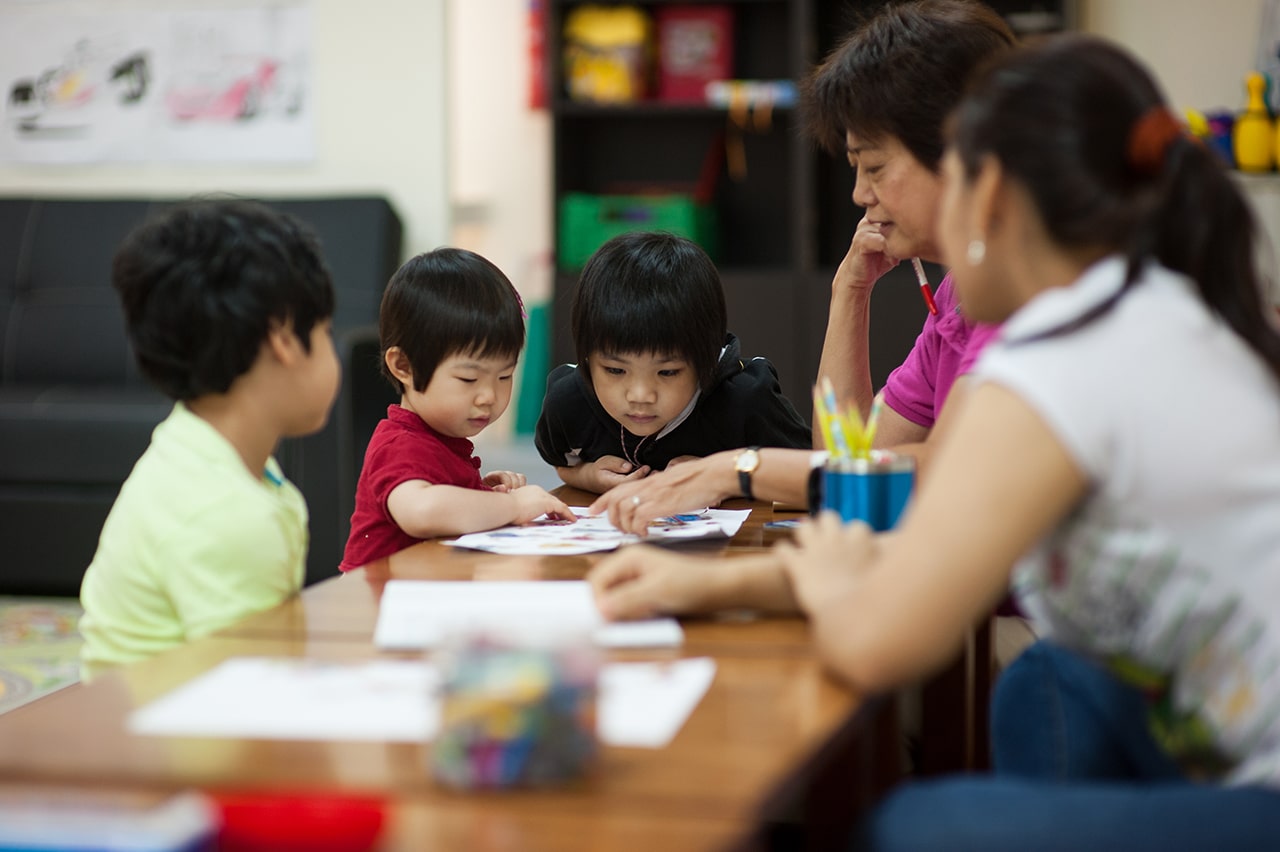4 Critical Educational Gaps for Disadvantaged Children & Youth in Singapore


While abilities and talents are distributed equally across the population, access to educational resources is often not. Children from low-income families are the ones who pay the price. Without the right educational opportunities, they underperform in school and end up with lower-paying jobs. Studies show that students from low-income families are more than four times as likely to be low performers than their affluent peers. (OECD, 2016) Without intervention, this cycle of income inequality will persist.
The growing special needs community is also in need of our urgent attention. One key area that we highlight is the need for integration with mainstream students. There needs to be greater awareness about creating better school and work opportunities for this community while preparing them to function independently as adults.
In this article, we highlight critical educational gaps for disadvantaged and vulnerable children and ways to level the playing field and improve their opportunities for social mobility.
#1 Funding for Early Education
The pre-school landscape presents over 1,900 childcare centres and kindergartens. They offer a wide-ranging fee structure that can range from a few dollars to over S$2,000 a month, depending on whether they are full or half-day programmes and with or without subsidies.
During these early childhood years, pre-school education provides the foundation for children. It helps them develop the confidence and social skills to get them ready for formal education. However, low-income families may struggle even with subsidised fees.
Children from families that can set aside additional resources for pre-school education have more opportunities to strengthen their social and behavioural skills than those from disadvantaged backgrounds. As the child is placed into a learning environment earlier in pre-school, they are weaned into the academic lifestyle earlier, which also aids their performance in formal education. Studies show that social-economically advantaged children in Singapore outperformed disadvantaged students in reading by 104 points. (PISA, 2018)
While pre-school education is not compulsory, it is critical to ensure that all children get off the starting block of formal school without too much difficulty. Therefore, parents must understand the importance of pre-school education and available financial assistance schemes. It ensures that the children have access to critical education in their formative years.
#2 Developing Life Skills
A child’s home environment has a powerful impact on school readiness. Parents or caregivers in low-income homes tend to be busy working or absent; they have little time to support their children’s learning needs. Children often do not receive the stimulation they need and do not learn the social skills required to prepare them for school.
The resulting lower self-confidence, lower motivation, and reduced resilience pose further obstacles in their struggle for social mobility.
Activities such as team sports, drama, and public speaking encourage interaction. They are great for boosting confidence, self-esteem, and socio-emotional skills. We need funding for programmes to provide alternative avenues for these children to develop these essential skills.
#3 Rising Cost of Higher Education
Education has not been spared, with consumer prices increasing steadily over the years.
Singapore’s average annual education inflation rate from 2001 to 2021 was 2.87%. Higher education, specifically polytechnic diploma fees, rose 20% between 2015 and 2022. The average cost of a 3-year polytechnic education is close to $37,000. (MOE 2022)
Although statistics show that a polytechnic graduate earns 1.4 times more than an ITE graduate, many students will not choose to study at a polytechnic. One reason for this is due to the high school fees. Those who do may drop out of school for the same reason.
Even with existing public financial aid programmes, students from financially disadvantaged backgrounds still struggle to pay their school and living expenses. More financial assistance from the private sector, in the form of pocket money, bursaries, or scholarships, will help these students bolster the shortfall in higher education expenses.
#4 Lack of Integration
For the special needs community, a critical piece that is sorely lacking is inclusivity. Special education schools are separate from mainstream schools in Singapore, and students do not intermingle. However, research shows that special needs children benefit from interacting with peers with stronger academic abilities. This benefit goes both ways, as children who have interacted with people with special needs from young develop greater empathy and respect for diversity. (Association for Psychological Science, 2014).
This is a strong push for special education and mainstream schools to work together to create opportunities for meaningful interaction between their students. Children with disabilities are given a chance to develop their potential and thrive in the same environment as their peers.
Funding is required to beef up resources, training and partnerships to facilitate exchange among educators from different backgrounds. We could achieve greater harmonisation across mainstream primary schools, special education, pre-schools and early intervention sectors. An inclusive educational environment would offer a curriculum that caters to different needs, paces of learning as well as provide the facilities and resources required.
Other than school, these children tend to spend less time in public spaces or in recreational activities. Sometimes it is due to practical reasons like access difficulties, which is a great pity as they miss out on opportunities to connect to the larger community. Funding can be directed towards the intentional design of public spaces, sports, and cultural activities so that those with special needs can feel that they are truly a part of society.
Do more with your giving—how CFS can help
To enable every child to shine to their fullest potential and better support the disadvantaged, CFS can help you make a positive impact by aligning your donations with the needs of this community.
CFS is a cause-neutral organisation that enables us to support grant-making to a wide range of charitable areas that match the donors’ interests and uplift diverse communities in Singapore. These charitable areas include children, youth, education, families, seniors, persons with disabilities, sports, health, animal welfare, environment to arts and heritage.
We partner with charities that focus on clearly identified problem areas or social gaps which might be under-supported. Charities must also demonstrate measurable outcomes and good stewardship of funds.
A simple and effective way to contribute to a variety of causes in Singapore is by setting up a Donor-Advised Fund (DAF). A DAF can be set up by an individual, a beneficiary of a will, a trust, or a family office. CFS will handle all fund administration and leverage our unparalleled insight into Singapore’s charitable landscape to provide philanthropy advice that ensures your giving is targeted, accountable and impactful. CFS strives to ensure that every grant which goes out creates positive change.
As a donor, you will save on legal expenses and enjoy upfront tax deductions at the prevailing rate on eligible donations. Donors will also receive regular statements tracking incoming donations to the DAF and outgoing disbursements to charities. CFS has an established track record when it comes to setting up DAFs and our DAF payout rates outperformed the entire US DAF industry by 12% and their community foundations by two times.
If you would like to begin your giving journey with CFS, get in touch with us.
While abilities and talents are distributed equally across the population, access to educational resources is often not. Children from low-income families are the ones who pay the price. Without the right educational opportunities, they underperform in school and end up with lower-paying jobs. Studies show that students from low-income families are more than four times as likely to be low performers than their affluent peers. (OECD, 2016) Without intervention, this cycle of income inequality will persist.
The growing special needs community is also in need of our urgent attention. One key area that we highlight is the need for integration with mainstream students. There needs to be greater awareness about creating better school and work opportunities for this community while preparing them to function independently as adults.
In this article, we highlight critical educational gaps for disadvantaged and vulnerable children and ways to level the playing field and improve their opportunities for social mobility.
#1 Funding for Early Education
The pre-school landscape presents over 1,900 childcare centres and kindergartens. They offer a wide-ranging fee structure that can range from a few dollars to over S$2,000 a month, depending on whether they are full or half-day programmes and with or without subsidies.
During these early childhood years, pre-school education provides the foundation for children. It helps them develop the confidence and social skills to get them ready for formal education. However, low-income families may struggle even with subsidised fees.
Children from families that can set aside additional resources for pre-school education have more opportunities to strengthen their social and behavioural skills than those from disadvantaged backgrounds. As the child is placed into a learning environment earlier in pre-school, they are weaned into the academic lifestyle earlier, which also aids their performance in formal education. Studies show that social-economically advantaged children in Singapore outperformed disadvantaged students in reading by 104 points. (PISA, 2018)
While pre-school education is not compulsory, it is critical to ensure that all children get off the starting block of formal school without too much difficulty. Therefore, parents must understand the importance of pre-school education and available financial assistance schemes. It ensures that the children have access to critical education in their formative years.
#2 Developing Life Skills
A child’s home environment has a powerful impact on school readiness. Parents or caregivers in low-income homes tend to be busy working or absent; they have little time to support their children’s learning needs. Children often do not receive the stimulation they need and do not learn the social skills required to prepare them for school.
The resulting lower self-confidence, lower motivation, and reduced resilience pose further obstacles in their struggle for social mobility.
Activities such as team sports, drama, and public speaking encourage interaction. They are great for boosting confidence, self-esteem, and socio-emotional skills. We need funding for programmes to provide alternative avenues for these children to develop these essential skills.
#3 Rising Cost of Higher Education
Education has not been spared, with consumer prices increasing steadily over the years.
Singapore’s average annual education inflation rate from 2001 to 2021 was 2.87%. Higher education, specifically polytechnic diploma fees, rose 20% between 2015 and 2022. The average cost of a 3-year polytechnic education is close to $37,000. (MOE 2022)
Although statistics show that a polytechnic graduate earns 1.4 times more than an ITE graduate, many students will not choose to study at a polytechnic. One reason for this is due to the high school fees. Those who do may drop out of school for the same reason.
Even with existing public financial aid programmes, students from financially disadvantaged backgrounds still struggle to pay their school and living expenses. More financial assistance from the private sector, in the form of pocket money, bursaries, or scholarships, will help these students bolster the shortfall in higher education expenses.
#4 Lack of Integration
For the special needs community, a critical piece that is sorely lacking is inclusivity. Special education schools are separate from mainstream schools in Singapore, and students do not intermingle. However, research shows that special needs children benefit from interacting with peers with stronger academic abilities. This benefit goes both ways, as children who have interacted with people with special needs from young develop greater empathy and respect for diversity. (Association for Psychological Science, 2014).
This is a strong push for special education and mainstream schools to work together to create opportunities for meaningful interaction between their students. Children with disabilities are given a chance to develop their potential and thrive in the same environment as their peers.
Funding is required to beef up resources, training and partnerships to facilitate exchange among educators from different backgrounds. We could achieve greater harmonisation across mainstream primary schools, special education, pre-schools and early intervention sectors. An inclusive educational environment would offer a curriculum that caters to different needs, paces of learning as well as provide the facilities and resources required.
Other than school, these children tend to spend less time in public spaces or in recreational activities. Sometimes it is due to practical reasons like access difficulties, which is a great pity as they miss out on opportunities to connect to the larger community. Funding can be directed towards the intentional design of public spaces, sports, and cultural activities so that those with special needs can feel that they are truly a part of society.
Do more with your giving—how CFS can help
To enable every child to shine to their fullest potential and better support the disadvantaged, CFS can help you make a positive impact by aligning your donations with the needs of this community.
CFS is a cause-neutral organisation that enables us to support grant-making to a wide range of charitable areas that match the donors’ interests and uplift diverse communities in Singapore. These charitable areas include children, youth, education, families, seniors, persons with disabilities, sports, health, animal welfare, environment to arts and heritage.
We partner with charities that focus on clearly identified problem areas or social gaps which might be under-supported. Charities must also demonstrate measurable outcomes and good stewardship of funds.
A simple and effective way to contribute to a variety of causes in Singapore is by setting up a Donor-Advised Fund (DAF). A DAF can be set up by an individual, a beneficiary of a will, a trust, or a family office. CFS will handle all fund administration and leverage our unparalleled insight into Singapore’s charitable landscape to provide philanthropy advice that ensures your giving is targeted, accountable and impactful. CFS strives to ensure that every grant which goes out creates positive change.
As a donor, you will save on legal expenses and enjoy upfront tax deductions at the prevailing rate on eligible donations. Donors will also receive regular statements tracking incoming donations to the DAF and outgoing disbursements to charities. CFS has an established track record when it comes to setting up DAFs and our DAF payout rates outperformed the entire US DAF industry by 12% and their community foundations by two times.
If you would like to begin your giving journey with CFS, get in touch with us.
- Related Topics For You: ACCESSING QUALITY EDUCATION, CHARITY STORIES, CHILDREN, DONOR STORIES, DONOR-ADVISED FUND, EDUCATION, INCLUSIVITY & INTEGRATION, OPINION, YOUTH



